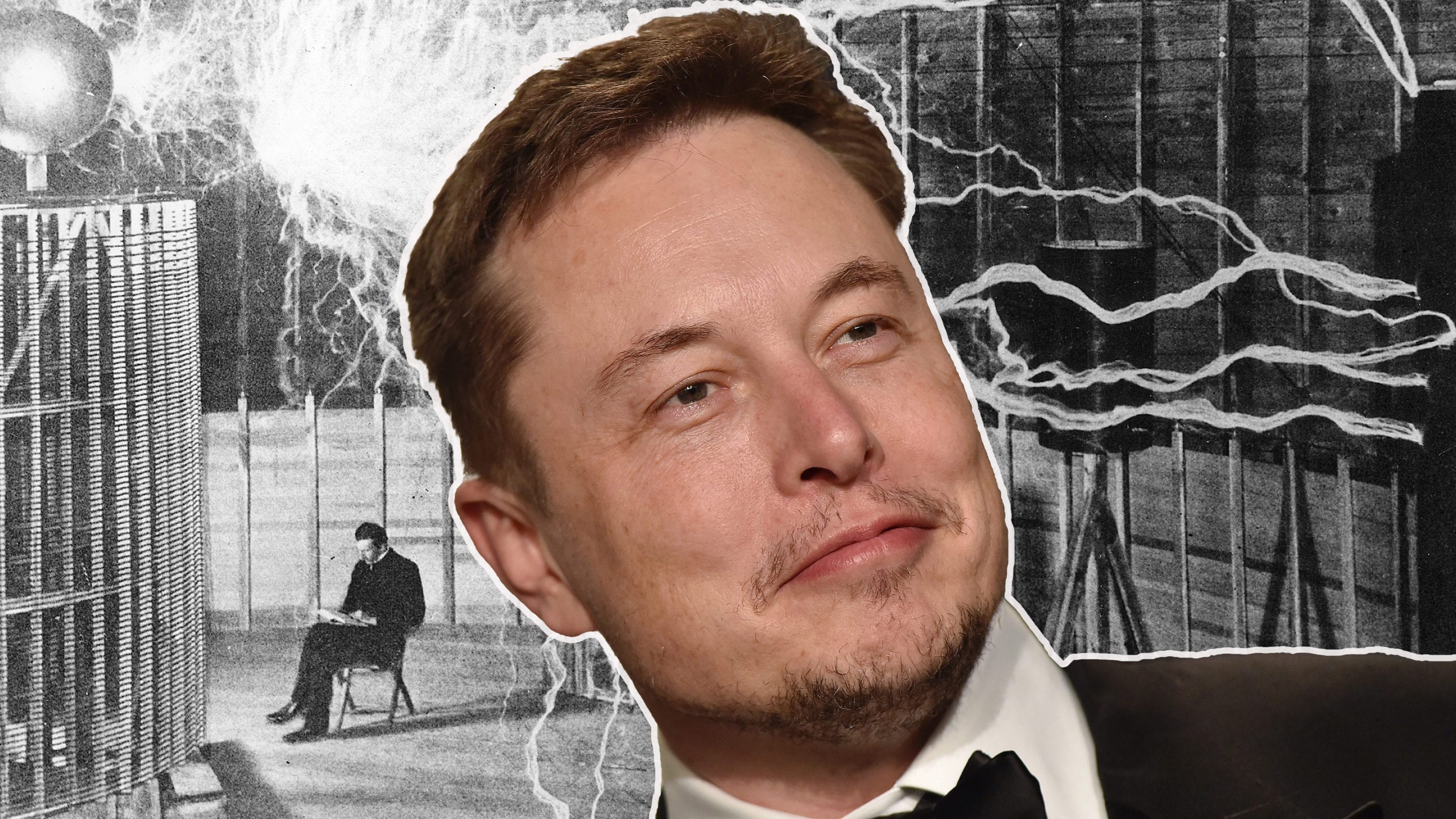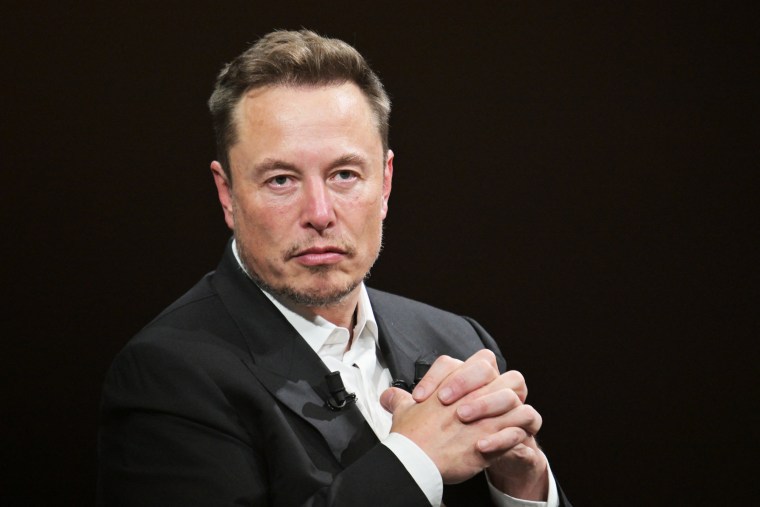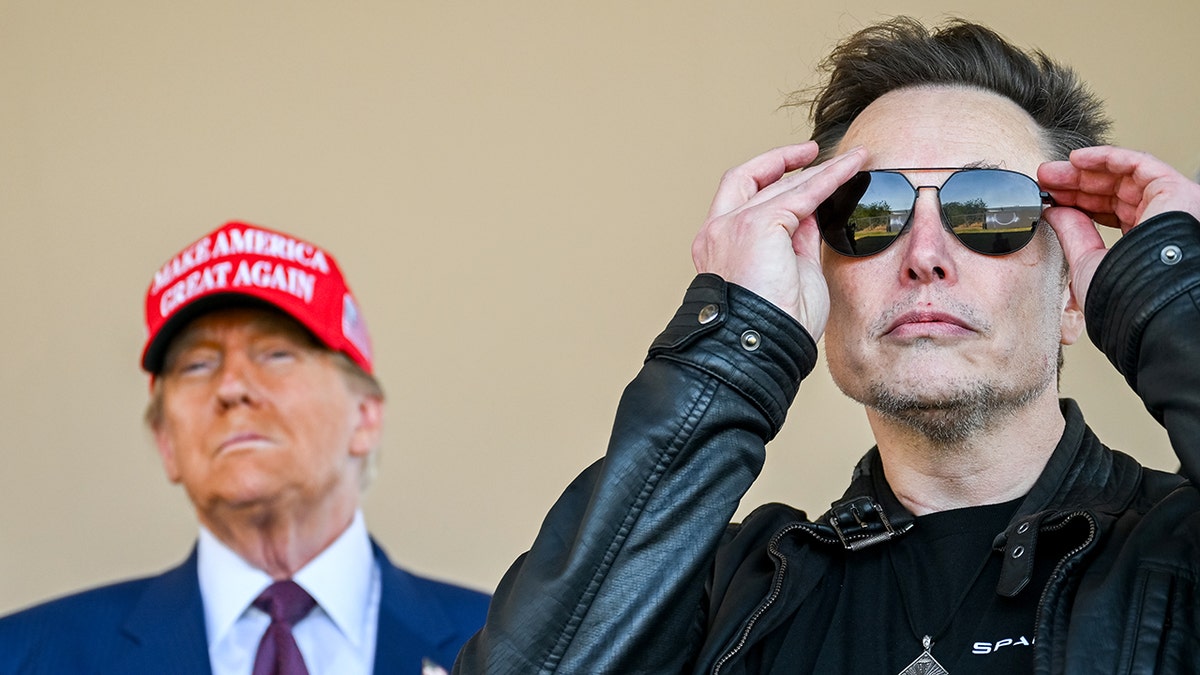Elon Musk: Antichrist Or Visionary Innovator? The Debate You Need To Know
Elon Musk has become a polarizing figure in the modern world. Love him or hate him, there’s no denying his impact on technology, business, and even religion. As debates rage about whether he’s a visionary innovator or something more sinister, like the antichrist, it’s worth diving into the facts, theories, and evidence behind these claims. If you’ve ever wondered where the “Elon Musk antichrist” narrative came from or why so many people see him as a revolutionary leader, this article is for you.
From his groundbreaking work with SpaceX and Tesla to his controversial tweets and public appearances, Elon Musk continues to spark conversations around the globe. But why has he become such a controversial figure? Is it because of his ambitious goals, his eccentric personality, or something deeper rooted in religious symbolism? Let’s explore the truth behind the hype.
In this article, we’ll break down the arguments for and against Elon Musk being labeled as the antichrist while also celebrating his undeniable contributions to innovation. Whether you’re a die-hard fan or a skeptic, this piece will give you a balanced perspective on one of the most talked-about figures of our time.
Read also:Ken Jeongs Los Angeles Home Tour A Peek Into Celebrity Homes
Table of Contents
- Elon Musk: A Brief Biography
- Early Life and Education
- Career Highlights
- The Antichrist Theory: Where Did It Come From?
- Why Elon Musk Is Seen as a Visionary Innovator
- Religious Symbolism in Elon Musk’s Work
- Conspiracy Theories Surrounding Elon Musk
- Elon Musk’s Impact on Technology and Society
- Criticisms and Controversies
- What’s Next for Elon Musk?
Elon Musk: A Brief Biography
Before we dive into the debate of whether Elon Musk is the antichrist or a visionary innovator, let’s take a step back and look at who he really is. Elon Musk is not just a tech billionaire; he’s a complex individual with a fascinating life story. Below is a quick overview of his life, achievements, and legacy.
Early Life and Education
Born on June 28, 1971, in Pretoria, South Africa, Elon Musk grew up with an insatiable curiosity for science and technology. By the age of 12, he had already created and sold his first video game, Blastar. His early fascination with computers and coding set the stage for his future success.
After moving to Canada to attend Queen’s University, Musk eventually transferred to the University of Pennsylvania, where he earned degrees in physics and economics. This combination of scientific knowledge and business acumen would later prove instrumental in his entrepreneurial ventures.
Career Highlights
| Year | Company | Achievement |
|---|---|---|
| 1995 | Zip2 | Co-founded a startup that provided business directories and maps online |
| 2002 | SpaceX | Founded SpaceX to revolutionize space travel and make life multiplanetary |
| 2004 | Tesla | Became a major investor and CEO of Tesla, leading the electric vehicle revolution |
| 2015 | Neuralink | Started Neuralink to develop brain-computer interfaces |
| 2016 | The Boring Company | Launched The Boring Company to solve traffic congestion with underground tunnels |
Elon Musk’s career is defined by his relentless pursuit of innovation and his willingness to take risks. Each of his companies represents a bold vision for the future, whether it’s colonizing Mars, creating sustainable energy solutions, or enhancing human cognition.
The Antichrist Theory: Where Did It Come From?
So, how did the idea of Elon Musk being the antichrist even come about? Well, like most conspiracy theories, it started with a few coincidences and grew into a full-blown narrative. Some people point to the biblical prophecy of the antichrist as a global leader who deceives humanity, and they argue that Elon Musk fits this description due to his immense influence and controversial actions.
Religious Symbolism in His Name
One of the most cited reasons for labeling Elon Musk as the antichrist is the symbolism in his name. “Elon” sounds similar to “Elohim,” a Hebrew word for God, while “Musk” can be interpreted as a play on words related to “mask,” which some believe symbolizes deception. While these connections may seem far-fetched, they’ve fueled speculation among certain religious groups.
Read also:Draker10choi Jin Hyuk Marriage A Deep Dive Into The Heart Of Korean Entertainment
His Vision for the Future
Elon Musk’s ambitious plans for humanity’s future have also raised eyebrows. For example, his goal of colonizing Mars could be seen as an attempt to establish a new world order, while his work on artificial intelligence and brain-computer interfaces raises concerns about the potential loss of human autonomy. These futuristic ideas have led some to question whether he’s truly working for the greater good or if he has ulterior motives.
Why Elon Musk Is Seen as a Visionary Innovator
On the flip side, many people view Elon Musk as a visionary innovator who is pushing the boundaries of what’s possible. His contributions to technology, science, and society are undeniable, and his ability to inspire others to think big is unmatched.
- Space Exploration: SpaceX has made significant strides in reducing the cost of space travel and advancing our understanding of the universe.
- Sustainable Energy: Tesla has revolutionized the automotive industry by making electric vehicles mainstream, while SolarCity has brought renewable energy solutions to millions of homes.
- Neuralink: By developing brain-computer interfaces, Neuralink aims to enhance human capabilities and address neurological disorders.
- Infrastructure Innovation: The Boring Company is tackling urban congestion with innovative tunneling solutions.
Elon Musk’s vision extends beyond profit margins; he’s genuinely passionate about solving some of the world’s biggest challenges. This dedication has earned him a loyal following and a reputation as one of the most influential figures of our time.
Religious Symbolism in Elon Musk’s Work
While the antichrist theory may seem far-fetched, there’s no denying that Elon Musk’s work often intersects with religious themes. For instance, his goal of making humanity multiplanetary echoes the biblical concept of spreading life across the Earth. Similarly, his focus on artificial intelligence and human enhancement raises ethical questions about the nature of creation and the role of God.
Some argue that Elon Musk’s projects are not inherently religious but rather reflect a broader philosophical exploration of humanity’s place in the universe. Others see his work as a challenge to traditional beliefs, sparking debates about the intersection of science and spirituality.
Conspiracy Theories Surrounding Elon Musk
As with any high-profile figure, Elon Musk has been the subject of numerous conspiracy theories. Some claim he’s part of a secret society, while others believe he’s an alien or a time traveler. While these theories may sound absurd, they highlight the fascination and intrigue surrounding his persona.
One popular theory suggests that Elon Musk is intentionally manipulating global events to consolidate power and control. Proponents of this theory point to his involvement in industries like energy, transportation, and space exploration, arguing that his influence extends far beyond what’s visible on the surface.
Elon Musk’s Impact on Technology and Society
Regardless of whether you see Elon Musk as the antichrist or a visionary innovator, his impact on technology and society cannot be ignored. His companies have disrupted established industries, created thousands of jobs, and inspired countless others to pursue bold ideas.
However, his influence also raises important questions about the future of work, privacy, and ethical responsibility. As technology continues to evolve, it’s crucial to consider the implications of innovations like artificial intelligence, brain-computer interfaces, and space colonization.
Criticisms and Controversies
No one is perfect, and Elon Musk is no exception. Over the years, he’s faced numerous criticisms and controversies, ranging from workplace conditions at Tesla to his handling of public relations. Some critics argue that his aggressive business tactics prioritize profits over people, while others question his commitment to ethical practices.
Despite these challenges, Elon Musk remains undeterred, continuing to push forward with his ambitious goals. Whether you agree with his methods or not, there’s no denying his ability to drive change and inspire others.
What’s Next for Elon Musk?
Looking ahead, Elon Musk has no shortage of ambitious projects on the horizon. From launching Starlink satellites to provide global internet coverage to developing fully autonomous electric vehicles, his plans continue to captivate the world. Additionally, his work on Neuralink and The Boring Company promises to reshape the way we interact with technology and navigate our cities.
While the future remains uncertain, one thing is clear: Elon Musk will continue to challenge the status quo and redefine what’s possible. Whether you view him as a savior or a skeptic, there’s no denying his role in shaping the world we live in today.
Conclusion
In conclusion, the debate over whether Elon Musk is the antichrist or a visionary innovator reflects the complexity of his persona and the profound impact of his work. While some may see him as a threat to traditional beliefs, others view him as a beacon of hope for humanity’s future. Ultimately, the truth lies somewhere in between.
We encourage you to explore both sides of the argument and form your own opinion. Feel free to share your thoughts in the comments below or check out our other articles for more insights into the world of technology and innovation. Remember, the future belongs to those who dare to dream big—and Elon Musk is certainly one of them!


